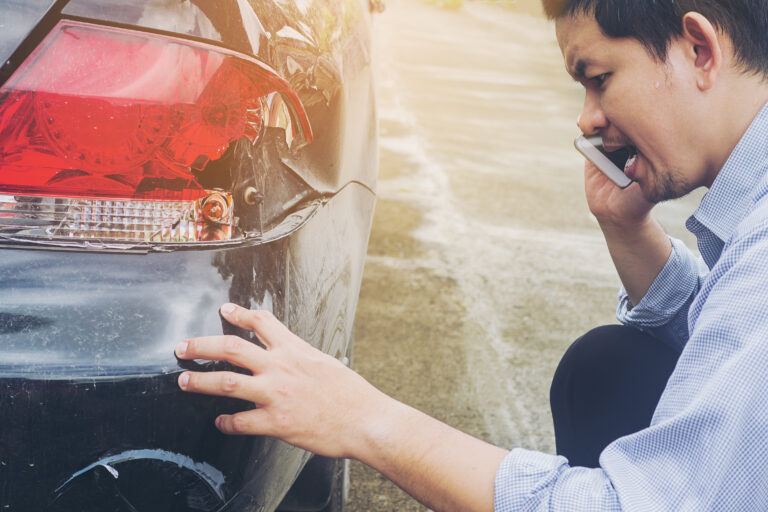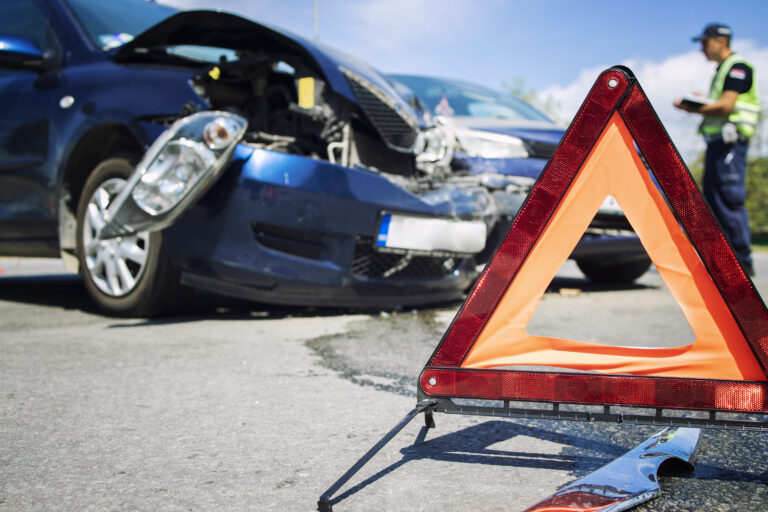Many times, being in a car accident is a frightening and confusing event that leaves many people unclear on what to do right after. The safety of all parties concerned, as well as the result of any possible vehicle accident injury claims, can be greatly impacted by knowing what to do. This blog attempts to provide you with precise guidance on how to manage the fallout from a car accident so that your actions are sensible and beneficial.
Emergency Responses Following a Car Accident
Ensuring you and everyone else involved are safe should be your top concern in the moments following immediate actions after a car crash. Look for injuries on yourself and any passengers first. Should you suspect any major injuries, do not try to move and wait for medical services. In case you can continue without injury, see how other drivers or pedestrians are doing.
Security of the accident site is essential after safety has been evaluated to stop more accidents. Should the accident be minor and your car is blocking the road, carefully relocate it to the side; if not, leave it where it is. To warn other drivers, turn on your danger lights and, if you have them, set up safety triangles or flares.
Making a phone call to the police is the next step. Anyhow serious the accident, a police report is required. The report will record the collision and come in very handy when submitting insurance claims or handling legal matters. As you wait for the cops, start getting the other driver’s name, phone number, and insurance information. Disagreeing at the scene over fault or responsibility might make the legal process more difficult.
Information compiling and documentation
Car accident injury claims might be handled much differently if the accident scene is meticulously documented. Take close-up pictures of the vehicles using a smartphone or camera, concentrating on the damaged locations and the whole scene, including any skid marks, road signs, and vehicle positions. In establishing liability and handling claims, insurance adjusters and lawyers may find great use for this visual proof.
Ask for the witnesses’ phone numbers as well, if any exist. Their viewpoints on the accident might be rather helpful in elucidating the facts. When the police report becomes available, keep a copy of it, together with receipts for any costs paid as a result of the collision and, if injuries were caused, records of medical care.
The Insurance Business
- Once security is guaranteed and all required information is collected:
- Declare the accident to your insurance carrier.
- Give them the police report number together with all the supporting details.
- As your call is probably being taped, be honest about the event and refrain from blaming anyone or speculating on the reason for the accident.
Your insurance company will handle the claim submission. Depending on the facts of the event and your policy, you might be qualified for reimbursement for your injuries and medical bills. Should injuries be involved, think about speaking with a lawyer who focuses on injury claims from car accidents to make sure your rights are safeguarded and you get paid what you are due.
Considerations for the Long Run
When there are major injuries or complicated legal problems, the fallout from a car collision can go much beyond the initial event. See a doctor to follow up on any hidden injuries. Should your injury claims need strong proof of impact and healing, keep a thorough record of your recovery journey.
To keep informed about the status of your claim, it is also advisable to follow up with your insurance adjuster often. Speaking with a lawyer could be required to represent your best interests if you become unhappy with the insurance process or if the settlement falls short of your expectations.
Lawyers: Protecting Your Rights
Speaking with a lawyer step after a car accident is a good idea, particularly if there are disagreements over who is at fault or if there are complications involving several people. An attorney can make sure the law completely safeguards your rights and offers priceless guidance on negotiating the claims procedure. Along with negotiating with insurance companies, they can help to get a settlement that fairly pays for losses and injuries.
Subsequent Medical Examinations
Some injuries can manifest symptoms days after the collision, even if you feel OK. A second appointment with a medical practitioner is crucial to rule out any undiscovered injuries. Recording these visits can also help you in an injury claim because it gives a thorough picture of your condition after the accident.

Comprehension of Insurance Policies
Learn the particulars of your insurance policy, including its coverage limits. Finding out what your insurance covers—from medical bills to rental car fees—can help you avoid unanticipated charges. Should the coverage you now have not met your needs, you should think about changing your policy to provide you with future protection.
car Repair Navigation
After an accident, handling car repairs can be a pain. To be sure you’re receiving reasonable prices, seek quotes from a few reliable repair facilities. In case you have to show your insurance company or a courtroom your receipts and thorough work logs.
What Accident Reconstruction Experts Do
Hiring an accident reconstruction specialist could be required in intricate situations where the fault is hotly contested. These experts can be very important in legal and insurance processes since they can examine the accident scene and apply scientific techniques to ascertain what happened.
Tracking Your Mental Health
A car collision can have a psychological toll just as great as it does physical damage. After the experience, worry, anxiety, or maybe PTSD symptoms could appear. Getting expert advice or becoming a member of support groups can help you control these side effects and enhance your general health.
Engaging Your Support System
Call on loved ones to help you during this difficult period. They can assist you emotionally to help you deal with the tension and anxiety that frequently accompany a traumatic occurrence, as well as practically by driving you to appointments or running errands.
Getting Ready for Possibly Legal Action
Should insurance company talks break down or if the suggested settlement does not meet your needs, be ready to take the case to court. Assemble all required paperwork and keep in regular communication with your lawyer to develop a compelling case.
When Patience Counts
From medical treatment to compensation, there are several stages in the sometimes-drawn-out process from accident to resolution. It is important to be patient because hurried claims or legal proceedings can not turn out well. Believe in the procedure and do as the experts managing your case advise.
Keep Records Ordered
Keep any accident-related documentation—medical records, repair bills, and legal and insurance correspondence—in a separate file. This methodical approach guarantees you have all the facts you need at your fingertips and also facilitates monitoring the development of your case.
Navigating the aftermath of a car accident involves careful steps to ensure your safety, protect your legal rights, and secure the proper compensation for any damages and injuries. The Cakani Law Firm, P.C. offers expert guidance and representation that can help simplify this process, ensuring that you don’t have to navigate the complex pathways of legal and insurance challenges alone. By following the outlined steps and consulting professionals, you can focus on your recovery and peace of mind, knowing that your case is in capable hands. Remember, the key to managing post-accident procedures effectively is to stay organized, seek timely medical and legal help, and maintain detailed documentation throughout your recovery and claim process.

